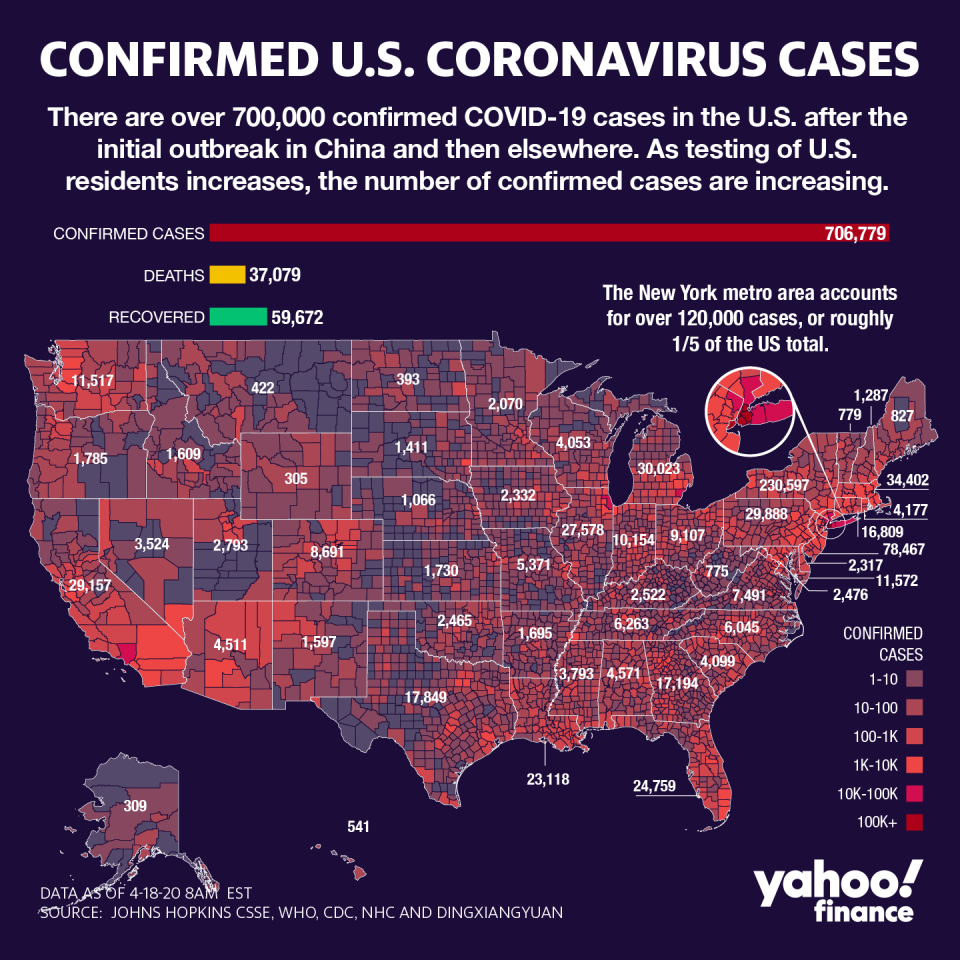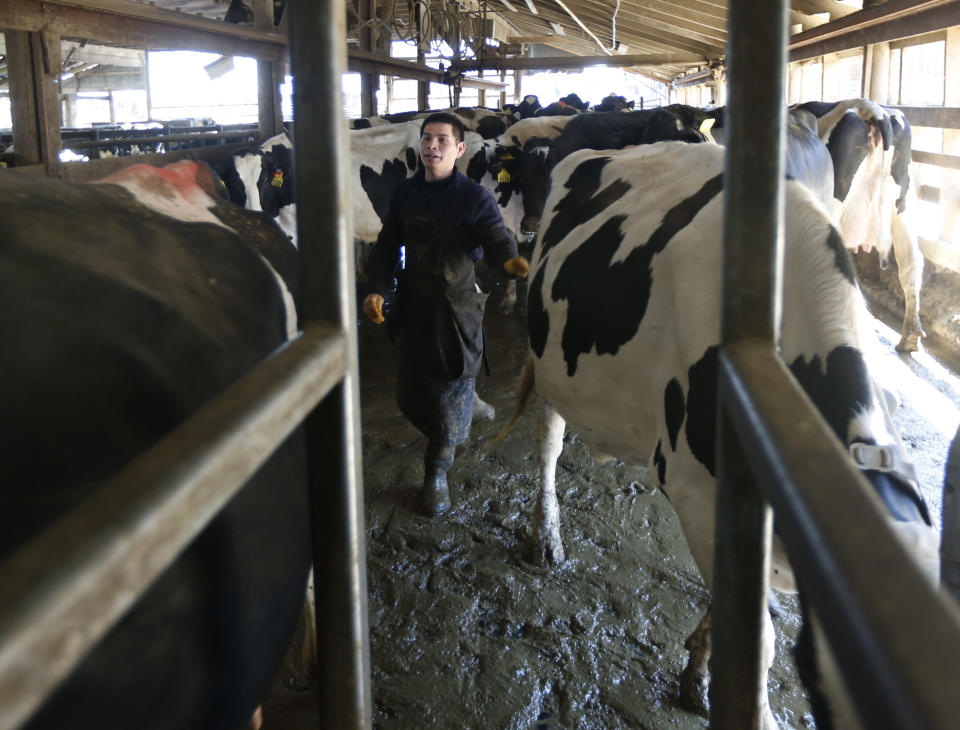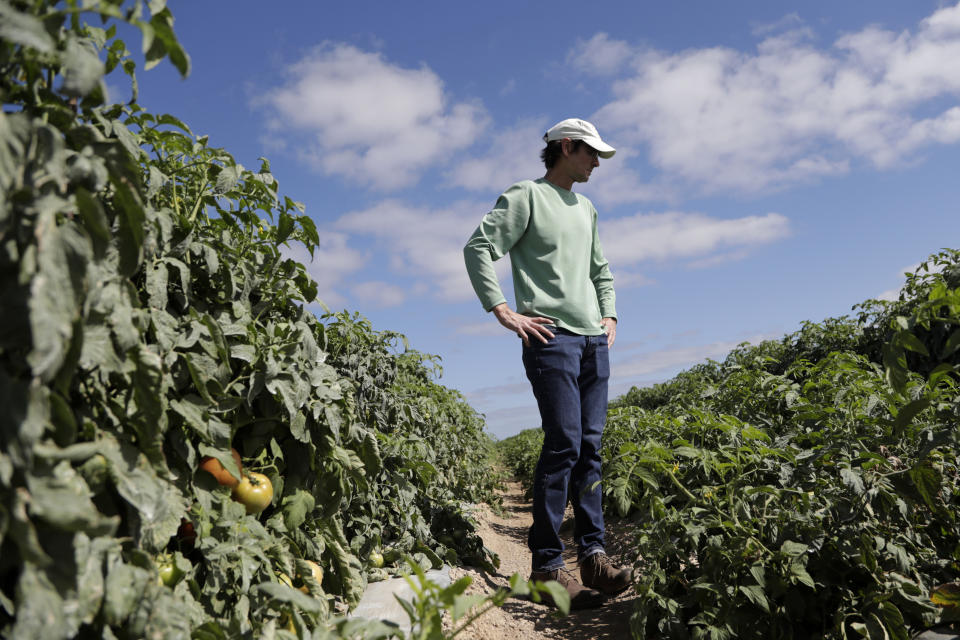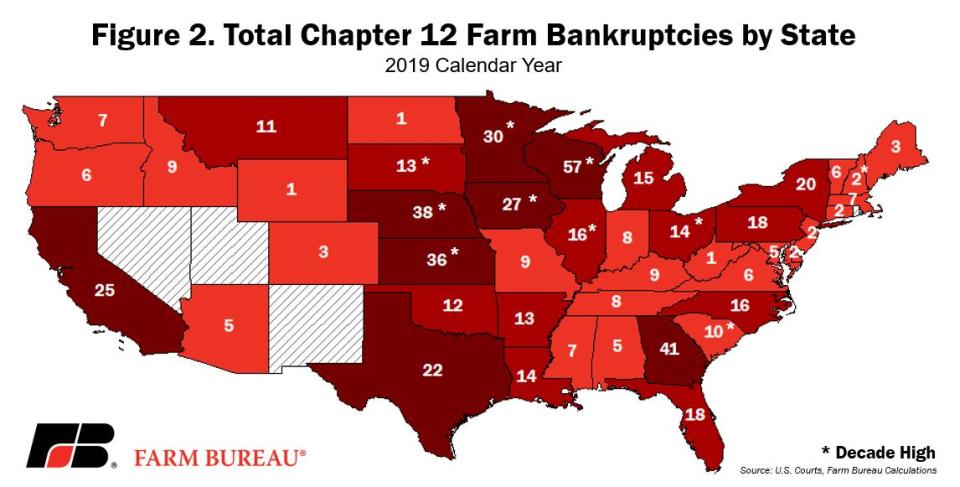Trump's farmer bailout is about to get a whole lot bigger amid coronavirus
The Trump administration announced on Friday that it would be providing $19 billion in aid to farmers as part of the Coronavirus Food Assistance Program (CFAP) as American farmers deal with the fallout of the coronavirus pandemic.
“The American food supply chain had to adapt, and it remains safe, secure, and strong, and we all know that starts with America’s farmers and ranchers,” Secretary of Agriculture Sonny Perdue said on Friday evening. “This program will not only provide immediate relief for our farmers and ranchers, but it will also allow for the purchase and distribution of our agricultural abundance to help our fellow Americans in need.”
Most of the money — $16 billion — will be used in direct support to agricultural producers to help them with adjustment and marketing costs from lost demand and short-term oversupply brought about by the pandemic. The remaining $3 billion will be used by the USDA to purchase $3 billion in fresh produce, dairy, and meat. It will be distributed to “food banks, community and faith-based organizations, and other non-profits serving Americans in need,” according to the USDA’s press release.

Part of the money will be coming from the coronavirus stimulus package (the CARES Act), which set $9.5 billion aside for the U.S. Department of Agriculture (USDA) to help livestock, fruit, and vegetable farmers.
“It’s certainly going to be very helpful but that’s not as big as the potential loss,” Michael Langemeier, a professor of agricultural economics at Purdue University, told Yahoo Finance. “And so I think that’s important to keep in mind. Even though it sounds like a really big number, I’ve seen a national estimate recently that the reduction in net farm income for the U.S. farm sector could be as high as $20 billion.”
Travis Clark, a Wisconsin-based farmer who grows crops like corn, soybeans, and dairy, doesn’t know “how to answer” when asked if an aid package will help.
“How do I know how much will get to us dairy farmers?” he told Yahoo Finance. “How much of the aid will get eaten up by administration and not ever reach the industry feeding the world? No clear answer on that.”

Worse than the trade war
Over the last two years, USDA has doled out market facilitation payments to alleviate the financial pain farmers were suffering as a result of the U.S.-China trade war.
A total of $28 billion has been approved for distribution to farmers.
The market facilitation payments have been the object of criticism for some who claim that only the bigger farms have been getting the money.
Both Clark and Wayne Gajewski, a Wisconsin-based dairy farmer, stressed that the current circumstances with coronavirus differ from the trade war uncertainty.

The trade tensions surrounding U.S.-China and the USMCA ratification “furthered the downtrend of where agriculture’s been the last four years with not having those approved,” Gajewski told Yahoo Finance. “Things got slowly tighter and tighter, at least my opinion, on dairy and probably crop farmers. Probably everyone throughout the state because it not only affects farmers, it affects everybody in the industry also.”
“With [the trade deal and USMCA] approved,” he continued, “I think that was the right step and things were looking like we were heading in the right direction, but this coronavirus definitely switched gears again because we’re faced with something that we’re not sure how to handle. Government wise, farm wise, you do what you have to do but you try not to get out too much just in case. We’re rural here where it’s not a big problem but you don’t know where it might be.”
According to Clark, prices are a lot worse off now than they were amid the trade war/USMCA uncertainty.
“All the uncertainty of what is going to happen next month, next week, or even what will be announced tomorrow has impacted our prices for the worst,” he said.

‘It’s really hard to come up with a remedy’
The coronavirus has led to stay-at-home orders across the country, which means that restaurants, schools, and other workplaces have had to shut down or drastically reduce operations. As a result, demand for many agricultural products is down, like dairy and meat.
“The restaurant industry — you take the higher end beef products, primarily that go to the restaurant industry, and when you have a big shock in their demand for those products and you have to go through different channels, you’re not going to get as good a price,” Langemeier said. “This really is a tough situation because the impact is so widespread and it’s not just agriculture, it’s the whole economy. It’s so widespread, it’s really hard to come up with a remedy, other than these direct payments.”

Mike Stranz, vice president of advocacy for the National Farmers Union, said that some initial direct payments to farmers will help — in the short run.
But “broader policy changes need to be made in order to make this assistance more long lasting,” he said. “We need to find ways to have management of supply and otherwise if we just keep providing assistance to farmers, it’s not fixing anything in the long term because demand has gone down.”
Stranz laid out several suggestions for how the government could help farmers during this time, including loan forbearance, interest rate reductions, a break on interest rate increase, and a moratorium on farm foreclosures.
“If we let this crisis put a lot of family farmers out of business, they can’t just come back after this,” he said. “So we need to give them as much flexibility as possible in order to stay farming through the pandemic.”

‘It’s going to take a while for that demand to come back’
Langemeier is particularly concerned about the fate of livestock when the coronavirus crisis subsides.
“This impact on livestock in particular is gonna have legs because it’s gonna take a while, I think, before people are comfortable dining in restaurants again,” he said. “Even if we did open up these restaurants in May, that’s probably wishful thinking on their part, but if we did open those up in May... people aren’t going to rush to those right away and so it’s going to take a while to get that demand back. The major impact is going to be in 2020, but it’s going to be throughout 2020. Obviously the biggest impact is now but it’s going to take a while for that demand to come back.”
Dairy farmers are also facing uncertainty — the industry has been suffering for a while now, and the demand issue only adds to that stress. Overall in the country, farm bankruptcies reached an 8-year high in 2019.
In Wisconsin, in particular, the heart of the dairy industry, there were 57 farm bankruptcies last year, the highest in the nation. Over the past 15 years, there's been a 49% decrease in the number of dairy farms in the state. And between 2016 and 2018, Wisconsin lost almost 1,200 dairy farms.

Gajewski said that prices were good starting off this year, but are now slowly “tailing off.”
“I think the worst months will probably be May and June because with the milk futures being down,” he said. “I guess at this point, I’m not sure what’s in the package they’re setting up, but I think for the agricultural industry, that definitely would be a help.”
But, he added, “I think it will be a challenge for sure for those that are struggling already coming off the last four years.”
For Clark, the day-to-day operations at this dairy farm haven’t changed. The main issue brought about by coronavirus is prices, which he said have dropped “sufficiently.”

“Back in late fall and winter, the 2020 outlook on the dairy industry was looking at a year for us to rebound on prices and do some catch-up on the balance sheet,” he said. “Now the outlook is below the cost of production.”
In order for the agricultural community to bounce back, he said, business needs to go back to usual.
“Restaurants need to open, ice cream stands, kids back to school (school lunches), tourism — these are all huge consumers of our dairy products,” he said. “We provide the safest, healthiest dairy products for your family. We need to see an increase in our products price, unfortunately farmers are price takers and not price makers. After starting another year of poor prices, it will be sad to see even more dairy farms throwing in the towel.”
Read more:
'Be patient': Public health expert urges people to trust social distancing amid coronavirus outbreak
New York subway chief on coronavirus: Federal aid for MTA is 'a matter of national urgency'
Coronavirus: Health care workers face stress that's 'in many ways equal' to combat
Read the latest financial and business news from Yahoo Finance
Follow Yahoo Finance on Twitter, Facebook, Instagram, Flipboard, SmartNews, LinkedIn, YouTube, and reddit.
